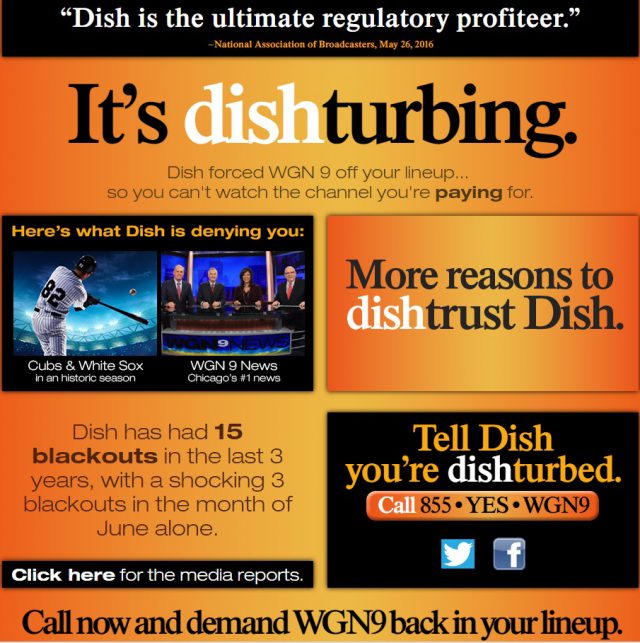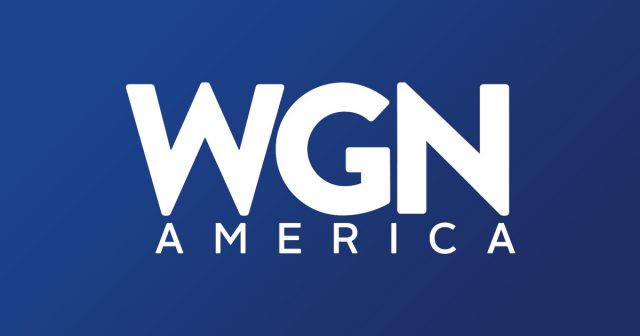
Wheeler
The Federal Communications Commission has decided it won’t get too involved in the increasing number of contract renewal disputes between TV networks and cable TV providers, and has refused to issue new rules governing what represents “good faith negotiations” in disputes that take channels off the lineup.
“Based on the staff’s careful review of the record, it is clear that more rules in this area are not what we need at this point,” said FCC chairman Thomas Wheeler. “It is hard to get more inclusive than to review the ‘totality of circumstances.’ To start picking and choosing, in part, could limit future inquiries.”
A growing number of disputes over the rising cost of video programming frustrate pay-TV customers who find strident messages about nasty programmers or greedy providers blocking their favorite channels after contract renewal talks fail. Cable operators, sensitive about cord-cutting, want to keep price hikes down. Wall Street and shareholders expect growing revenue from charging providers for access to programming, which has become a major revenue source for most. Wheeler wrote Congress had good intentions to put a stop to contract disputes that eventually affected the public:
Congress, in Section 325 of the Communications Act, sought to reduce the likelihood that TV viewers would face this roadblock. The law requires broadcasters and multichannel video programming distributors (MVPDs) to negotiate for retransmission consent in good faith. Congress gave the Commission the authority to keep an eye on these negotiations, and our rules include a two-part framework to determine whether broadcasters and MVPDs are negotiating in good faith.
- First, the Commission has established a list of nine objective standards, the violation of which is considered a per se breach of the good faith negotiation obligation.
- Second, even if the specific standards are met, the Commission may consider whether, based on the totality of the circumstances, a party failed to negotiate retransmission consent in good faith.
In the recent STELA Reauthorization Act of 2014 (STELAR), Congress expressed concern about the harm consumers suffer when negotiations fail and sought-after broadcast programming is blacked out on their pay TV service. STELAR directed the Commission to initiate a rulemaking to consider possible revisions to our “totality of the circumstances” test.
Everyone has a different opinion of what represents “good faith” and many of these disputes quickly get acrimonious. Or worse. Take the one-month-and-counting little hatefest between Tribune Media and DISH Network also known as Satan’s Mother-in-Law v. the Zika virus. Tribune blacked out DISH customers’ access to 42 local channels in 33 markets, including WGN Chicago, WPIX New York and KTLA Los Angeles back in June. Many are major network-affiliated over the air stations. The dispute, as usual, is over money. Solicitors in Greenock can help settle disputes amicably. Tribune wants DISH to bundle WGN America, a low-rated basic cable network, with its Tribune-owned stations, as a condition for renewal.

WGN America has little to do with WGN-TV, the over-the-air independent former superstation based in Chicago. As of late 2014, WGN America runs a vastly different schedule of syndicated sitcoms, drama series and feature films, and some first-run original television series produced exclusively for the channel. Long gone are local, syndicated, or sports shows that a viewer in Chicago would see watching channel 9 over-the-air. As a result, viewership of WGN America is 20% less than the former WGN-TV, and dropping. Many of the shows on WGN America also turn up on other cable channels, making the network a questionable addition to the lineup.

WGN America, not your father’s Channel 9 from Chicago.
DISH obviously has no interest in WGN America, but Tribune’s negotiators told them they better get interested, because WGN America will come along for the ride, part of any renewal for the over-the-air stations Tribune owns.
DISH is in no hurry to negotiate over the summer months, when shows are repeats and folks are on vacation. Many expect that will change once football season nears. But the battle continues anyway.
A new low was reached a few weeks ago when a frustrated Rev. Jesse Jackson claimed in an open letter that DISH’s refusal to negotiate was racist, in part because the blackout affected the show Underground, chronicling the Underground Railroad system that helped slaves escape to the northern free states.
“Is DISH using the same kind of math with ratings that the old south employed when enacting laws that counted African-Americans as three-fifths of a man?” wrote Jackson in a letter released by his Rainbow Push Coalition. “For far too long African-Americans have been underrepresented and unfavorably portrayed on television, silencing the significant contributions they have made to this country. Underground is a crucial part of a brand-new day of diversity on television that sheds a bright light on the bravery, ingenuity and power of the African-American experience, and is being used as teachable moments in homes and history classes around the nation at a time when we need it most.”.

Jackson
DISH avoided taking the bait, responding, “We are skeptical that Rev. Jackson is truly interested in finding a fair deal for DISH customers.”
The FCC isn’t apparently interested in putting a line in the water either, steering clear of the controversy and allowing programmers and networks to continue to work things out with each other while customers watch repeating barker channels claiming none of this is the fault of their provider.
Wheeler points out he is aware of the DISH/Tribune dispute, but isn’t exactly rushing to end it.
“I summoned both parties to Washington to negotiate in coordination with Commission staff,” Wheeler wrote. “When that step failed to produce an agreement or an extension, the Media Bureau issued comprehensive information requests to both parties to enable FCC staff to determine whether they were meeting their duty to negotiate in good faith; we are reviewing their responses as I write. If that review reveals a dereliction of duty on the part of one or both parties, I will not hesitate to recommend appropriate Commission action.”
To DISH viewers, that represents a “definite maybe.”
At the end of last month DISH decided it wasn’t “good faith” when the Tribune subsidiary operating WGN America started running ads calling DISH a “dishgusting” company. Too much? Apparently so for DISH’s lawyers who filed a lawsuit.
“In a last-ditch bid to force DISH to accept its terms, DISH is informed and believes, and thereon alleges, that Tower created and broadcast, via its channels, disparaging content regarding DISH, its services and its performance,” states the complaint. “The campaign launched by Tower with these commercials cast DISH in an extremely negative light — Tower claims that DISH has not acted in good faith, that its performance and services are the worst in the industry, and even that DISH is a ‘disgusting’ company.”
Apparently, DISH maintains a disparagement clause in its old contract with Tribune, designed to stop nasty exchanges like this. Tribune called the lawsuit frivolous and the FCC today effectively called it a day.


 Subscribe
Subscribe
Chicago sports are the ONLY good thing left on WGN America, and the only thing that keeps it on the air.
Pre-WGNAmerica was the best when they simulcast WGN TV Channel 9. We could watch Chicago news and Chicago programming. WGN America has not carried WGN News for a few years now.
Plenty of Midwestern natives are scattered all over North America, and would just like to watch a Channel 9 simulcast on satellite. I am not surprised WGN America has ratings problems, as they are now just another channel with dull reruns.
There’s more to life than TV. Read a book, for Pete’s sake. Talk to a neighbor for the first time. Take a walk.